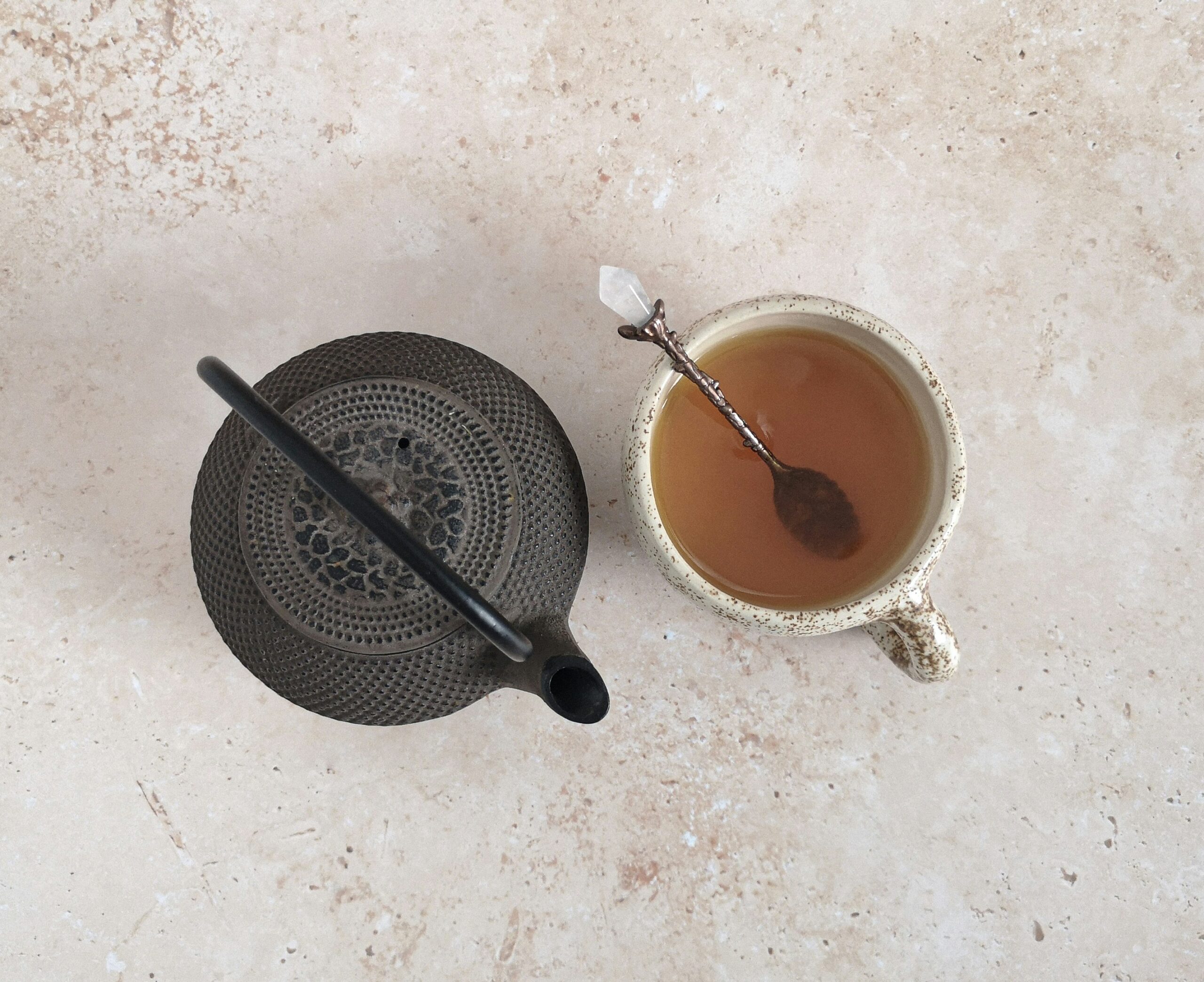
Hibiscus tea is celebrated for its tart flavour and vibrant colour, but what are its benefits for expectant mothers? While hibiscus tea is popular for its potential health benefits, it may not be suitable during pregnancy. Various studies suggest that hibiscus can influence hormone levels, which might affect pregnancy. This makes it important for pregnant women to be cautious and seek medical advice before consuming this herbal tea.
Despite its popularity, the safety of hibiscus tea for pregnant women remains a hot topic. There’s emerging evidence suggesting it could lead to uterine contractions or affect oestrogen levels. These potential effects highlight the importance of consulting healthcare professionals before including this tea in your diet during pregnancy. For those who aren’t expecting, hibiscus tea may offer benefits like managing cholesterol and possibly aiding in weight management. This is thanks to its rich blend of antioxidants and other active compounds.
Hibiscus tea distinguishes itself from other herbal teas not only because of its potential benefits but also because of these specific risks for pregnant women. Understanding its safety and how it compares to other teas can help you make informed decisions about your health and wellness routines. Whether you’re drawn to its health perks or cautious about its effects, knowing more about hibiscus tea is vital for both tea lovers and expectant mothers.
Key Takeaways
- Hibiscus tea may affect hormone levels and isn’t recommended during pregnancy.
- Its active compounds might help with cholesterol and weight management for others.
- Consulting health professionals is advised for safe consumption decisions.
Understanding Hibiscus and Its Cultural Significance
Hibiscus is a plant known for its beautiful flowers and significant cultural value. It has been used in various traditions across the world, particularly for its health benefits and as a decorative element. Hibiscus Sabdariffa, commonly used for making tea, is especially valued.
The Hibiscus Plant
Hibiscus, particularly Hibiscus Sabdariffa, is notable for its striking red flowers. These flowers are not just visually appealing; they are also used in traditional medicine. In many cultures, hibiscus is seen as a symbol of femininity and is often used in celebrations and rituals.
The plant is common in tropical regions, where it’s part of local customs and practices. It’s been used for its potential health benefits, including managing blood pressure. Hibiscus has a rich history that reflects its importance in different societies. Teas and extracts made from hibiscus are popular for their tart flavour and potential wellness advantages.
Health Benefits of Hibiscus Tea
Hibiscus tea offers a range of health benefits due to its rich composition, including antioxidant properties, support for liver health, and management of blood pressure. It also plays a role in improving cholesterol levels, which contributes to heart health.
Antioxidant Properties
Hibiscus tea is a powerful source of antioxidants, which help protect your cells from damage caused by free radicals. These antioxidants can contribute to reducing inflammation and slowing down the ageing process. The rich content of compounds like anthocyanins gives hibiscus tea its vibrant red colour and beneficial effects. Regular consumption may support your body’s resilience against oxidative stress and help maintain overall wellbeing by shielding your cells.
Supporting Liver Health
Drinking hibiscus tea is known to help improve liver health. Antioxidant compounds in the tea assist in protecting the liver from free radical damage. Studies suggest that hibiscus tea can boost the detoxification process of the liver, helping to cleanse the body more efficiently. By supporting liver functions, it aids your body in processing nutrients and eliminating toxins effectively, maintaining your body’s health balance.
Managing Blood Pressure
Hibiscus tea is noted for its potential in managing blood pressure levels. Regular intake can help both reduce high blood pressure and maintain healthy levels. It is especially beneficial for individuals with mild hypertension. This benefit is linked to the tea’s ability to improve circulation and relax blood vessels. Incorporating hibiscus tea into your diet can be an easy lifestyle choice to monitor and manage your blood pressure naturally.
Cholesterol and Heart Health
Hibiscus tea has also been investigated for its role in improving cholesterol levels. It can help lower LDL cholesterol, which is often referred to as “bad” cholesterol. This benefit contributes to overall heart health and reduces the risk of cardiovascular diseases. By regularly consuming hibiscus tea, you may positively influence cholesterol levels in your body, which supports a healthier heart and circulatory system.
Hibiscus Tea During Pregnancy
When considering tea choices during pregnancy, you may wonder about the safety and effects of hibiscus tea. This tea, made from the Hibiscus flower, is known for its potential health benefits and challenges.
Potential Benefits for Pregnant Women
Some studies suggest that hibiscus tea may have benefits like lowering blood pressure. This could be helpful for pregnant women with hypertension concerns. Hibiscus sabdariffa L. tea has been noted for its blood pressure-lowering effects.
Antioxidants found in hibiscus have been linked to improved heart health. They may support your body by combating free radicals which can cause cellular damage. However, despite these benefits, it’s essential to approach hibiscus tea with caution during pregnancy.
Risks and Considerations
Pregnancy requires careful attention to what you consume. Hibiscus tea might increase the risk of complications such as miscarriage or preterm labour. It can potentially impact oestrogen and progesterone balance, raising concerns about hormonal changes.
Consult your healthcare provider before including hibiscus tea in your diet. They can provide guidance based on your specific needs and medical history. Some experts advise avoiding it during pregnancy to minimise risks.
Understanding Uterine Contractions and Early Labour
Hibiscus tea is believed to have an effect on the uterus, which may lead to contractions. These effects raise concerns about early labour or preterm birth. Uterine activity can be problematic if the body isn’t ready for birth, and inappropriate timing could initiate contractions too soon.
Understanding the potential effects on uterine contractions helps you make informed decisions. While more research is needed to confirm these effects, it is essential to err on the side of caution. Be aware of your body’s responses and seek medical advice if you have any unusual symptoms.
Weight Management and Hibiscus Tea
Hibiscus tea has several potential benefits for weight management. It might influence metabolism and affect blood sugar levels, which could aid in controlling weight.
Influence on Metabolism
Hibiscus tea may play a role in managing weight by impacting your metabolism. Some studies suggest that compounds found in hibiscus can help reduce fat accumulation by affecting how your body metabolises carbohydrates and lipids. This could contribute to lower triglycerides, which are a type of fat in your blood.
Additionally, hibiscus tea might help in regulating high blood sugar. Proper blood sugar levels are crucial in managing weight, especially as glucose plays a vital role in energy balance. By influencing insulin sensitivity, hibiscus tea might assist in preventing excessive weight gain and support overall weight management efforts.
Nutritional Composition and Active Compounds
Hibiscus tea is known for its nutritional benefits, including a range of active compounds that promote health. This section will explore the key components, focusing on polyphenols, anthocyanins, vitamin C, and organic acids that contribute to the tea’s properties.
Polyphenols and Anthocyanins
Hibiscus tea is rich in polyphenols, a group of compounds known for their antioxidant properties. These substances help in protecting your body from free radicals, which can cause damage to your cells. Particularly noteworthy are anthocyanins, a type of polyphenol that gives hibiscus tea its vibrant red colour.
Anthocyanins are associated with several potential benefits, such as reducing blood pressure and lowering the risk of heart disease. They may also support your immune system by reducing inflammation. Including hibiscus tea in your diet can be a simple way to boost your intake of these beneficial compounds.
Vitamin C and Organic Acids
Vitamin C is an essential nutrient found in hibiscus tea. It plays a crucial role in supporting your immune health, aiding in the repair of tissues, and acting as an antioxidant. This vitamin is vital for maintaining the health of your skin and tissues, ensuring proper function.
Organic acids present in hibiscus tea, such as citric acid and malic acid, contribute to its tangy flavour. These acids can support your digestive health by enhancing the absorption of minerals like iron. By incorporating hibiscus tea into your beverage options, you can enjoy the combined benefits of vitamin C and organic acids, aiding in general wellness.
Safety and Side Effects
Hibiscus tea is popular for its tangy flavour and potential health benefits, but caution is advised for those using certain medications and women who are pregnant or lactating. Understanding possible interactions and safe consumption levels is important.
Possible Interactions With Medications
You might be taking medications that interact with hibiscus tea. Research indicates that hibiscus can potentially lower blood pressure, which can pose a risk if you’re already taking blood pressure medications. The tea might enhance the effects of these drugs, leading to dizziness or even hypotension. Furthermore, it could interfere with medications like acetaminophen by affecting how quickly the liver breaks them down.
It’s important to consult your healthcare provider if you’re considering adding hibiscus tea to your routine, especially if you’re on medications for hypertension or liver ailments. This ensures that you avoid compounded effects that could lead to unwanted side effects.
Limiting Consumption During Pregnancy and Lactation
Pregnancy and lactation require special care when it comes to your diet. Some studies suggest potential risks associated with hibiscus tea during pregnancy and breastfeeding. Concerns include the possible impact on hormonal balance, which could affect pregnancy outcomes. Research has shown mixed results regarding its safety, and further studies are needed.
Given these concerns, it is advisable to limit or avoid hibiscus tea during these periods. Consultation with a healthcare professional can help determine the best approach based on your personal health needs. If you’re looking for herbal alternatives, exploring teas known for their safety during pregnancy, such as ginger or chamomile, might be beneficial.
Comparing Hibiscus Tea With Other Herbal Teas
When considering herbal teas, it’s helpful to know how hibiscus tea stacks up against other popular options. Different teas offer various benefits and considerations, especially when consumed during pregnancy.
Common Alternatives and Their Uses
Herbal teas like peppermint, chamomile, and raspberry leaf are often compared with hibiscus tea. Peppermint tea is a soothing choice and can help with indigestion. Meanwhile, chamomile is known for its calming effects, making it a popular bedtime drink.
Raspberry leaf tea is often consumed during pregnancy for its potential to support uterine health. Fenugreek and fennel teas are sometimes used to aid digestion and support lactation, although their use during pregnancy should be carefully considered. Each of these teas has distinct properties and potential health benefits.
Herbal Tea Blends and Caffeine Content
One of the appealing aspects of herbal teas during pregnancy is that most are naturally caffeine-free. Hibiscus tea, like many others, contains no caffeine, making it a suitable option if you are avoiding stimulants.
Sage and ginseng teas, on the other hand, should be consumed with caution during pregnancy due to potential side effects. Herbal blends can provide balanced flavour profiles and additional benefits, such as combining ginger with lemon balm for a soothing drink. Always check blend labels to ensure safety and understand each ingredient’s health impact.
Conclusion
When it comes to drinking hibiscus tea during pregnancy, moderation is key. While hibiscus tea is often praised for its potential benefits, it’s essential to be cautious due to its potential impact on hormones. This is because it might affect your body’s natural balance during pregnancy.
Hibiscus tea is known for its antibacterial and anti-inflammatory properties. These qualities can help support your body’s immune response and reduce inflammation. Many people appreciate these benefits, but pregnant individuals should consult their healthcare provider before making it a regular part of their diet.
Hormonal effects should not be overlooked when considering hibiscus tea in your pregnancy diet. Some studies suggest that hibiscus might influence estrogen levels, which could be a concern for those carrying a child. Always discuss any dietary changes with your doctor to ensure your safety and your baby’s health.
Incorporating hibiscus tea into your pregnancy routine can be refreshing, but it’s important to be aware of its effects. Enjoy the tea in moderation and stay informed about how it interacts with your body, ensuring a safe and healthy pregnancy.
RELATED: Best Herbal Tea for Anxiety: Top Calming Blends Reviewed



Comments +